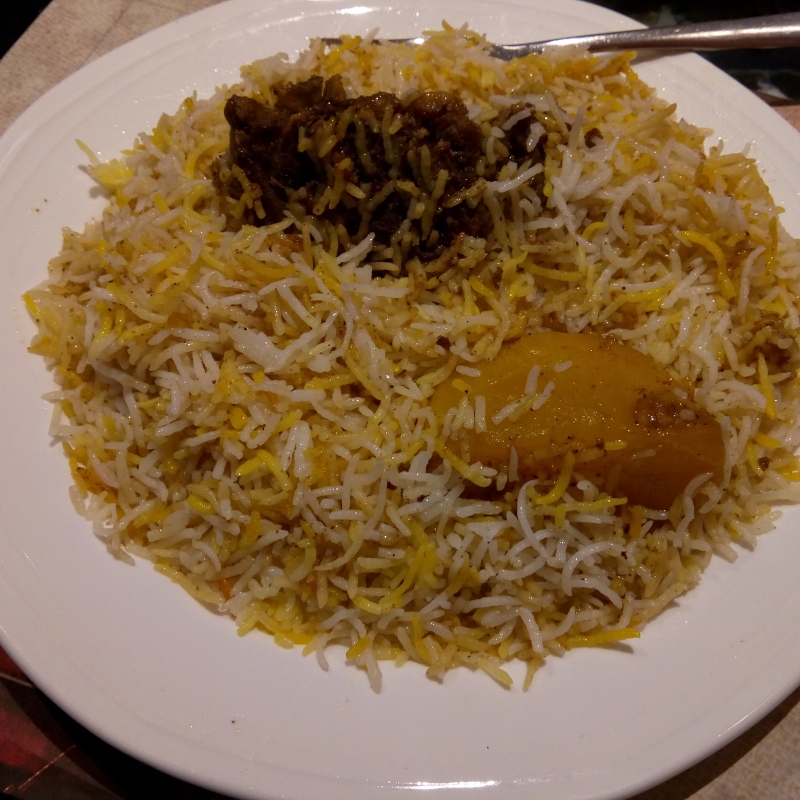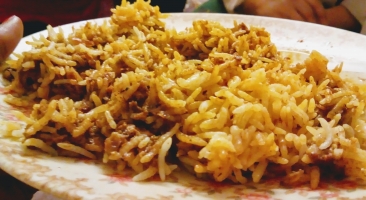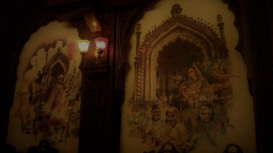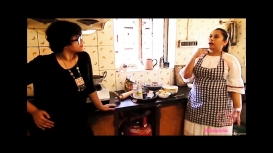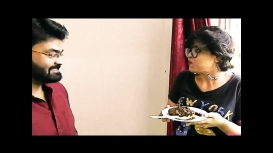Nawab Wajid Ali Shah, the tenth and last ruler of Oudh, who was on the throne from 1847 to 1856, is said to have brought the biryani to Calcutta in 1856, when he settled in Metiabruz, on the outskirts of Calcutta, an impeached, broken ruler. The Nawab, who is known to have been a patron of music, dances and literature, carried with him, all the way from Lucknow to Calcutta, via Kanpur, a taste of home: the Lucknowi/Awadhi biryani, cooked in the dumphukt style and served in a sealed handi which also led to this variety of biryani being called the 'dumphukt biryani' or the 'handi biryani'. The Kolkata biryani departs from its royal Awadhi origins in one distinct way – the presence of the humble potato in this regal biryani makes it unique. Thus, the Kolkata biryani stands for adaptability, flexibility and assimilation. Through this module we explore the roots and history of the Kolkata Birayani, while discussing its role in present day eating habits.

Somrita Urni Ganguly
Somrita Urni Ganguly is a professor, researcher, and translator, soon to complete her PhD from the Centre for English Studies, Jawaharlal Nehru University, New Delhi. She teaches British Literature to undergraduate students, and translates from Bengali and Hindi to English. She has been invited as translator-in-residence at Cove Park, Scotland, in October 2017, and in December 2017 she was invited as poet-in-residence at Arcs of a Circle, Mumbai. Somrita’s work has been showcased at the 2017 London Book Fair and she has been published in Asymptote, Words Without Borders, In Other Words, and Muse India, among others. She has been selected as a Fulbright Doctoral Research Fellow to complete the last stage of her PhD at Brown University, USA, in 2018-2019. Somrita has twelve academic publications to her credit and is a recipient of the Jawaharlal Nehru Memorial Fund Award (2013) and Sarojini Dutta Memorial Prize (2011). She is currently translating a novel on the Russian Revolution, a retelling of the Mahabharata, and an anthology of erotic verses, to be published later this year.
